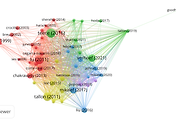Is the Psychological Safety a matter in the Manufacturing industry?
(An Empirical Study of large Korean Auto Part Manufacturing industry, n = 331)
One sentence summary:
While the Psychological safety is highly correlated with performance in the ICT industry, the construct has a limited influence on job performance in the manufacturing industry.
Definition of Psychological Safety:
Psychological safety: is defined as the “individuals’ perceptions about the consequence of interpersonal risks in their work environment” (Edmondson, 2004, p. 239). Empirical studies supported the idea that employees who perceive high psychological safety commonly end up with higher self-directed behavior that drives better creativity and performance (Hülsheger, Anderson, & Salgado, 2009; Kim, 2007).
Measurement of Psychological Safety:
Psychological safety was measured with seven items that were introduced by Edmondson (1999). A sample item for team psychological safety is “It is safe to take a risk in this unit”. The reliability of the psychological safety was reported as a measure of Cronbach’s alpha = .82 (Edmondson, 1999). Another empirical study in the U.S. that used the psychological safety measure also showed strong reliability (Cronbach’s alpha = .82) (Kim, 2007). Subordinates and supervisors got the same instrument to measure psychological safety because the instrument assesses the personal perception of a team environment.
For this study, the researcher used a Korean version of the team psychological safety measure that was developed and validated by Zhang (2011). The reliability of this Korean version was acceptable (Cronbach’s alpha = 0.74) (Zhang, 2011).
Participants (n=331)
The researcher recruited six large Korean automotive parts manufacturing companies through his personal network and snowball sampling techniques. 489 surveys out of 679 distributed surveys (73.0% response rate) were collected. Collected surveys from subordinates and supervisors from the six organizations were matched and screened prior to data analyses. After matching and screening data, a total of 331 (49.4%) surveys were selected for further quantitative data analysis. The selected dataset was composed of 43 surveys from supervisors and 288 surveys from subordinates.

After constraining items 3 and 5 of psychological safety, the CFA results indicated that the collected data had a generally good model fit with the proposed measurement model. However, one item (sr3) was less than the factor loading criteria and was removed from the final list of items.
*Remark: This result comes from the study of Dr. Jeonghwan Choi's dissertation (2014) at the University of Illinois at Urbana-Champaign.
The effects of the autonomous work environment and positive psychological capital on self-directed employee behavior: evidence from Korea
Choi, Jeong-Hwan
https://www.ideals.illinois.edu/handle/2142/50613
References:
Edmondson, A. C. (1999). Psychological safety and learning behavior in work teams. Administrative science quarterly, 44(2), 350-383.
Kim, D. M. (2007). Predicting psychological safety and its outcome in the workplace. (Master), San Jose State University.
'Choi's Research > 1.Progress in Research' 카테고리의 다른 글
| Research Project: Measurement (Organizational Agility and Health Paradox) (0) | 2024.02.05 |
|---|---|
| [RESEARCH] KUSA/WKU AGILE MANAGEMENT RESEARCH GROUP (0) | 2022.10.30 |
| PLS-SEM Guidelines and Compliances Summary (0) | 2017.07.15 |
| Good Questions for Case Study..!! (0) | 2008.09.12 |
| Integral Innovation Leadership Research (0) | 2008.07.25 |









댓글